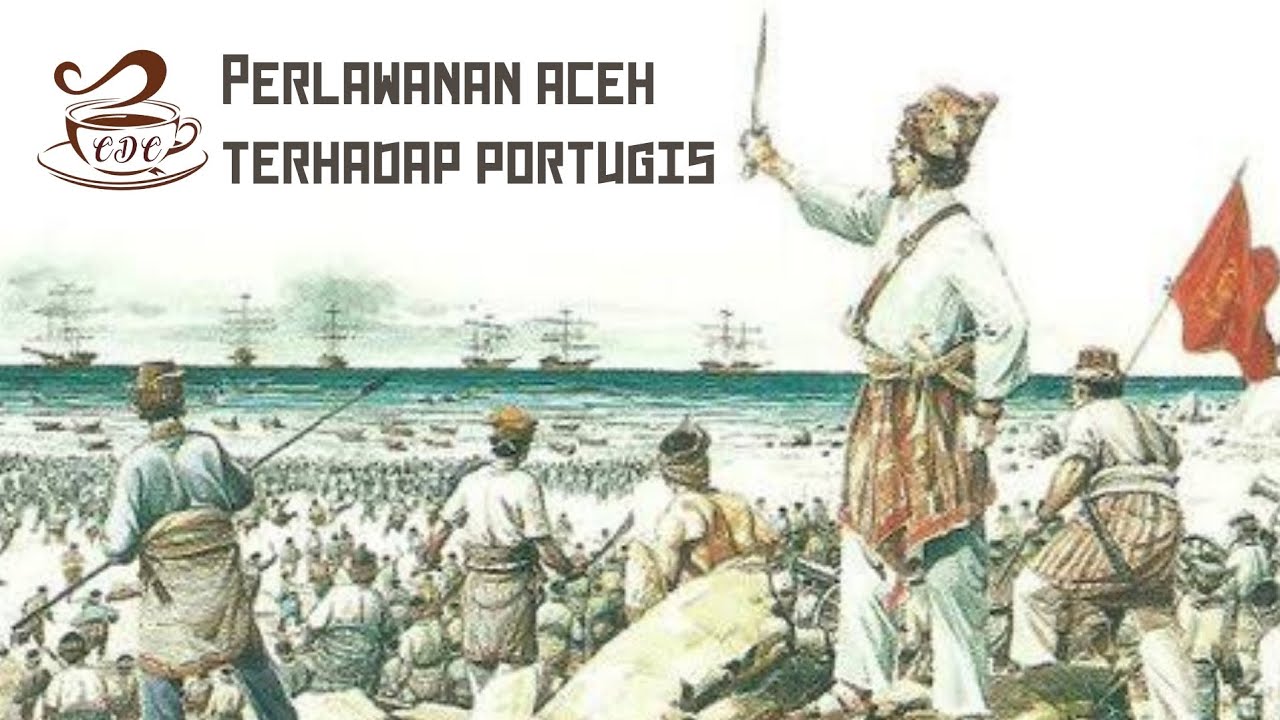Perlawanan Maluku terhadap Portugis
Summary
TLDRThis video explores the resistance of Maluku against Portuguese colonialism in the 16th century. It details the arrival of the Portuguese in 1511, their growing exploitation of the region, and the subsequent uprisings by the people of Maluku, including key battles and alliances. The script highlights the leadership of Sultan Hairun and his son Sultan Baabullah, who ultimately expelled the Portuguese from Ternate in 1575. It also reveals how the Dutch later took advantage of the situation, forcing the Portuguese out in 1605. The video provides a compelling narrative of defiance, political maneuvering, and the complex dynamics of colonial power struggles.
Takeaways
- 🌏 The Portuguese arrived in Maluku in 1511–1512 to find the origin of spices, stopping in Madura, Bali, and Lombok along the way.
- 🏰 In 1513, the Portuguese established forts in Picauli, Lama, and Mamala on Ambon Island after gaining permission from local kings.
- 💰 The Portuguese abused their position by imposing a spice trade monopoly, setting low clove prices, prohibiting local trade, capturing merchant ships, and attacking ships from Banda.
- ✝️ They forcibly spread Catholicism and interfered in the internal affairs of local kingdoms, creating widespread resentment.
- ⚔️ The people of Maluku launched multiple attacks against the Portuguese from 1520 to 1533, eventually defeating them in key battles.
- 🤝 Initially, Ternate cooperated with the Portuguese against Tidore, but broken agreements and abuses led to Ternate joining forces with Tidore against them.
- 👑 Sultan Hairun actively resisted Portuguese influence, sending his sons as commanders and attacking Portuguese forts, eventually negotiating partial peace.
- 🩸 In 1570, Portuguese Governor Lopes Damas killed Sultan Hairun, sparking renewed and intensified resistance from the Maluku people.
- 🔥 Sultan Baabullah, Hairun's son, unified Maluku regions, strengthened alliances, and led a large-scale attack that expelled the Portuguese from Ternate by 1575.
- 🇳🇱 The resistance of Maluku weakened Portuguese control, allowing the Dutch to establish their presence in Ambon and Tidore by 1605, while the Portuguese relocated to East Timor.
- 🛡️ The conflicts highlighted the importance of unity among local kingdoms in resisting colonial powers and protecting sovereignty.
Q & A
Who were the initial Portuguese leaders sent to Maluku, and when did they arrive?
-Antonio Agrow and Fransisco Serao were sent by Alfonso de Albuquerque in 1511 to explore the origin of spices in Maluku, arriving in Ternate by 1512.
What were the initial interactions between the Portuguese and the local rulers of Maluku?
-The Portuguese established friendship with local residents and kings on Ternate Island, receiving permission to build forts in Picauli, Lama, and Mamala on Ambon Island.
What actions by the Portuguese caused resentment among the people of Ternate and Maluku?
-The Portuguese implemented a monopoly on spices, set low prices for cloves, prohibited trade with other nations, captured merchant ships, fired on trading ships from Banda, forcibly spread Catholicism, and interfered in local governance.
When did the people of Maluku first launch attacks against the Portuguese?
-The people launched their first attacks in 1520 and 1525, eventually defeating the Portuguese by 1533.
How did local alliances affect the conflict with the Portuguese?
-Initially, Ternate allied with the Portuguese against Tidore, but when Portuguese actions violated cooperation agreements, Tidore joined Ternate in resisting the Portuguese.
Who was Sultan Hairun and what role did he play in resisting the Portuguese?
-Sultan Hairun was the Sultan of Ternate who actively fought against the Portuguese, sending his sons as commanders and attacking Portuguese forts until peace negotiations forced the Portuguese to revoke trade monopolies.
What event in 1570 escalated the conflict between Ternate and the Portuguese?
-In 1570, Portuguese Governor Lopes Damas invited Sultan Hairun to Sao Paulo Fort under the guise of celebrating improved relations but killed him, intensifying resistance from the people of Maluku.
Who led the major resistance against the Portuguese after Sultan Hairun's death?
-Sultan Baabullah, son of Sultan Hairun, led the major resistance, strengthening alliances through marriage and coordinating attacks on Portuguese forts with forces from Jailolo, Sula, and Ambon.
How did Sultan Baabullah successfully expel the Portuguese from Ternate?
-He besieged Sao Paulo fortress with 2,000 kora-kora and 120,000 soldiers, sent fleets to Ambon to target the Portuguese, and took advantage of the fact that reinforcements from Malacca could not arrive due to other sieges.
What was the long-term outcome of the Maluku resistance against the Portuguese?
-The Portuguese were expelled from Ternate in 1575 and later settled in East Timor. The Dutch used the resistance as a foothold, ultimately taking over Portuguese defenses in Ambon and Tidore by 1605.
How did the Portuguese initially try to maintain control despite setbacks?
-They pretended to be peaceful and negotiated trade agreements to buy time while attempting to restore their military strength.
Outlines

此内容仅限付费用户访问。 请升级后访问。
立即升级Mindmap

此内容仅限付费用户访问。 请升级后访问。
立即升级Keywords

此内容仅限付费用户访问。 请升级后访问。
立即升级Highlights

此内容仅限付费用户访问。 请升级后访问。
立即升级Transcripts

此内容仅限付费用户访问。 请升级后访问。
立即升级浏览更多相关视频

HEROIKNYA KIPRAH SULTAN TERNATE MELAWAN KOLONIALISME PORTUGIS

Perlawanan Bangsa Indonesia Terhadap Bangsa Portugis | Sejarah Indonesia

Materi Perlawanan Bangsa Indonesia menghadapi Portugis & Spanyol / Sejarah Indonesia

Gara-Gara Udah Eneg Sama Belanda, Rakyat Maluku Serius Ngajakin Perang di Saparua

ABAD KEJAYAAN TERNATE - SULTAN BAABULLAH DATU SYAH dan tersingkirnya Portugis dari Ternate!

Perlawanan Aceh terhadap Portugis
5.0 / 5 (0 votes)
